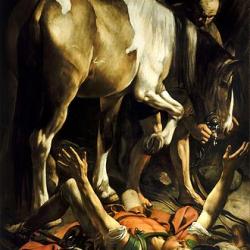June 12, 2025 is a combination of a day honoring fathers for Fathers day and the Holy Trinity for Trinity Sunday. June 12 is also the anniversary honoring another group of people namely the boy scouts.
In the midst of the fierce battle raging in Europe during World War 1, on June 15, 1916 United States President Woodrow Wilson signs a bill incorporating the Boy Scouts of America, making them the only American youth organization with a federal charter.
In the Boy Scout Handbook (1911) it lists a set of Scout virtues which are very compatible with Christianity. The book goes on to say…
Scout Virtues
(with added Scripture and Other Sources by The Catholic Bard)
Every scout should read over the following list of scout virtues, and should strive at all times to keep them before him in his training, thus making them a part of his life:
Unselfishness: The art of thinking of others first and one’s self afterward.
Love does not insist on its own way -1 Corinthians 13:5
Self Sacrifice: The giving up of one’s comfort, desires, and pleasures for the benefit of someone else.
Kindness: The habit of thinking well of others and doing good to them.
Father Faber says; “The grass of the field is better than the cedars of Lebanon. It feeds more, and it rests the eye better—–that thy my daisy-eyed carpet, making earth sweet and fair and homelike. Kindness is the turf of the spiritual world, whereon the sheep of Christ feed quietly beneath the Shepherd’s eye.” [“Spiritual Conferences,” Chapter I, Section 4.] Rev. J. Guibert, S.S.KINDNESS (1911)
Friendliness: The disposition to make everyone you meet feel at ease, and to be of service to him if possible.
In the Summa Theologica, Part II-II, Question 114, St. Thomas Aquinas speaks of a certain virtue which is commonly translated as “the friendliness which is called affability.” This friendliness, he notes, governs relationships between people because “it behooves man to be maintained in a becoming order towards other men as regards their mutual relations with one another, in point of both deeds and words, so that they behave towards one another in a becoming manner.” It does not only govern those relationships which are intimate or proximate; rather “Every man is naturally every man’s friend by a certain general love; even so it is written (Ecclesiasticus 13:19) that ‘every beast loveth its like.’” This does not mean that everyone must be treated with equal intimacy – some people are connected to us by a closer bond than others – but that there is a minimum affability or common decency which is owed to all persons. The Friendliness Called Affability — Dominican Friars | Province of the Most Holy Name of Jesus
Honesty: The desire to give to every one a square deal and the same fair chance that you yourself wish to enjoy. It means also respect for the property and rights of others, the ability to face the truth, and to call your own faults by their right name.
Speaking the truth in love, we are to grow up in every way into Him who is the head, into Christ. . . . Therefore, putting away falsehood, let everyone speak the truth with his neighbor, for we are members one of another. — Ephesians 4:15, 25
“Truly honest persons possess a harmonious and pleasant demeanor: nothing reproachable can be found in their actions, nothing inappropriate in their words, nothing indecent in their manner. Being spontaneous and respectful, their behavior wins the admiration and goodwill of all.” — St. Anthony of Padua
catholicexchange.com/the-saintly-approach-to-honesty/
Fair Play: Scorning to take unfair advantage of a rival and readiness even to give up an advantage to him.
In recent decades, there has been an increasing awareness of the need for fair play in sport, i.e., that the game is clean. Athletes honor fair play when they not only obey the formal rules but also observe justice with respect to their opponents so that all competitors can freely engage in the game.
Fair play allows sports to become a means of education for all of society, of the values and virtues found in sports, such as perseverance, justice and courtesy, to name a few that Pope Benedict XVI points out. “You, dear athletes, shoulder the responsibility –not less significant – of bearing witness to these attitudes and convictions and of incarnating them beyond your sporting activity into the fabric of the family, culture, and religion. In doing so, you will be of great help for others, especially the youth, who are immersed in rapidly developing society where there is a widespread loss of values and growing disorientation.” “Giving the best of yourself: a Document on the Christian perspective on sport and the human person, from the Dicastery for Laity, Family and Life
Loyalty: The quality of remaining true and faithful not only to your principles but also to your parents and friends.
Loyalty, Fidelity, Trust, and unswerving Devotion – these virtues are prized by almost every association, club, or group; by every business, church, or military organization; and by every society in every historical era. So highly regarded is loyalty that it is accompanied by a retinue of prepositions. Loyalty is said to be up, down, across, throughout, before, after, and during.
The Bible, too, speaks regularly about the covenant between God and man, assuring us that God is always faithful (Dt 7:9, Lam 3:22, 2 Tim 2:13, etc.) and urging us to seek friends of whose loyalty we can be sure. (Prv 3:3, 20:6; 1 Cor 4:2, etc.) On True – and False – Loyalty – The Catholic Thing
Obedience: Compliance with the wishes of parents or those in places of authority.
The eminent Jesuit theologian Father John Anthony Hardon, S.T.D. (1914-2000), in his helpful Pocket Catholic Dictionary (New York: Image Books, 1985), offered the following definition of obedience: “The moral virtue that inclines the will to comply with the will of another who has the right to command.” (Page 291)
Therefore, a person who is rooted in obedience submits his will to the one who possesses legitimate authority over him.
In his Summa Theologica (II, II, Question 104, Articles 4 and 5), Saint Thomas Aquinas (1225?-1274) declared that God is to be obeyed in all things, while human authorities are to be obeyed in certain things. Father Hardon explained: ” . . . obedience to God is without limit, whereas obedience to human beings is limited by higher laws that must not be transgressed, and by the competency or authority of the one who gives the orders.” (ibid.)
Monsignor Charles M. Mangan The Virtue of Obedience: Our Duty, Our Crown – Featured Today – Catholic Online
Discipline: That self-restraint and self-control that keep a boy steady, and help him in team work.
Essential to the stability of a nation is the self-discipline of its people. Self-discipline is the ability to regulate one’s actions on the basis of principle and not on the basis of desire, instinct, social custom or pressure. In ancient times, the walls of a city were its main defense. Without walls, the people became an easy prey for the enemy. Without self-discipline, an individual becomes the easy target for passion and desires. “Whoever has no rule over his own spirit is like a city broken down, without walls” (Prov 25:28). Bishop Arthur Serratelli –Self-Discipline: A needed virtue
Endurance: A manly moderation which keeps a boy fit and strong and in good condition.
The answer in all of these circumstances is the same: perseverance, patient endurance. Never give up, never quit. Keep going! If we remain united to Christ through prayer and the grace that comes to us in the sacraments, he will always give us the grace of perseverance, the grace that will lead us to holiness.
–The virtue of patient endurance – Where Peter Is
Self Improvement: The ambition to get on in life by all fair means.
Humility: That fine quality which keeps a scout from boasting, and which generally reveals a boy of courage and achievement.
Honor: That great thing which is more sacred than anything else to scouts and gentlemen; the disdain of telling or implying an untruth; absolute trustworthiness and faithfulness.

Duty to God: That greatest of all things, which keeps a boy faithful to his principles and true to his friends and comrades; that gives him a belief in things that are high and noble, and which makes him prove his belief by doing his good turn to some one every day.
No scout can ever hope to amount to much until he has learned a reverence for religion. The scout should believe in God and God’s word. In the olden days, knighthood, when it was bestowed, was a religious ceremony, and a knight not only considered himself a servant of the king, but also a servant of God. The entire night preceding the day upon which the young esquire was made knight was spent by him on his knees in prayer, in a fast and vigil.
There are many kinds of religion in the world. One important point, however, about them is that they all involve the worship of the same God. There is but one leader, although many ways of following Him. If a scout meets one of another religion, he should remember that he, too, is striving for the best. A scout should respect the convictions of others in matters of custom and religion.

Scout helping old lady across street
A Boy Scout’s Religion
The Boy Scouts of America maintain that no boy can grow into the best kind of citizenship without recognizing his obligation to God. The first part of the boy scout’s oath or pledge is therefore:
“I promise on my honor to do my best to honor my God and my country.”
The recognition of God as the ruling and leading power in the universe, and the grateful acknowledgement of His favors and blessings is necessary to the best type of citizenship and is a wholesome thing in the education of the growing boy. No matter what the boy may be–Catholic, or Protestant, or Jew–this fundamental need of good citizenship should be kept before him. The Boy Scouts of America therefore recognize the religious element in the training of a boy, but it is absolutely non-sectarian in its attitude toward that religious training.
Its policy is that the organization or institution with which the boy scout is connected shall give definite attention to his religious life. If he be a Catholic boy scout, the Catholic Church of which he is a member is the best channel for his training. If he be a Hebrew boy, then the Synagogue will train him in the faith of his fathers. If he be a Protestant, no matter to what denomination of Protestantism he may belong, the church of which he is an adherent or a member should be the proper organization to give him an education in the things that pertain to his allegiance to God.
The Boy Scouts of America, then, while recognizing the fact that the boy should be taught the things that pertain to religion, insists upon the boy’s religious life being stimulated and fostered by the institution with which he is connected. Of course, it is a fundamental principle of the Boy Scouts of America to insist on clean, capable leadership in its scout masters, and the influence of the leader on the boy scout should be of a distinctly helpful character.
Work, Not Luck
Life, after all, is just this: Some go through life trusting to luck. They are not worthy to be scouts. Others go through life trusting to hard work and clear thinking. These are they who have cleared the wilderness and planted wheat where forests once grew, who have driven back the savage, and have fostered civilization in the uncultivated places of the earth. The good scout is always at work–working to improve himself and to improve the daily lot of others.
The Boy Scouts of America an opportunity to go out and do their good turn daily for others in the thousand ways that will benefit our American life the most. Sometimes they will have to risk their lives, but it will be in case of fire or accident or catastrophe. At other times they will be given the privilege of showing simple deeds of chivalry by their courteous treatment of their elders, cripples, and children, by giving up their seats in street cars, or by carrying the bundles of those who are not as physically strong as themselves.
And in it all will come the satisfying feeling that they are doing just as much and perhaps a great deal more than the iron-clad men or the buckskin clothed scouts in making their country a little safer and a little better place to live in. Chivalry and courtesy and being a gentleman mean just as much now as they ever did, and there is a greater demand in these days to live pure, to speak true, and to help others by a good turn daily than ever before in the world’s history.
The scouting program is very compatible with the Catholic faith it got a papal approval and blessing for its application for Catholic appropriation.
A Papal Blessing
“And now may the Blessing of God descend upon each and all of you, upon all who have charge of you, to lead and guide you in the-paths of virtue. Such is Our wish to each one of you. And the greater will be your vigor, your strength and your nobility of character in later years, the more faithfully you attend now to your ideals and your duties as Catholic Boy Scouts, the more faithfully you continue to place the spiritual above the material, and to subject the material to the spiritual, and the more completely you place the thought of God and the lessons of the Faith, above all other thoughts and above all other lessons.
-Pope Pius XIThe Boy Scouts of America offers an excellent leisuretime program which will develop character and citizenship and, under Catholic auspices, will do this according to Catholic standards. It gives us the program; we supernaturalize it. Scouting for Catholics : adding the supernatural : Barcelo, Louis P. (Louis Paul), 1903-













